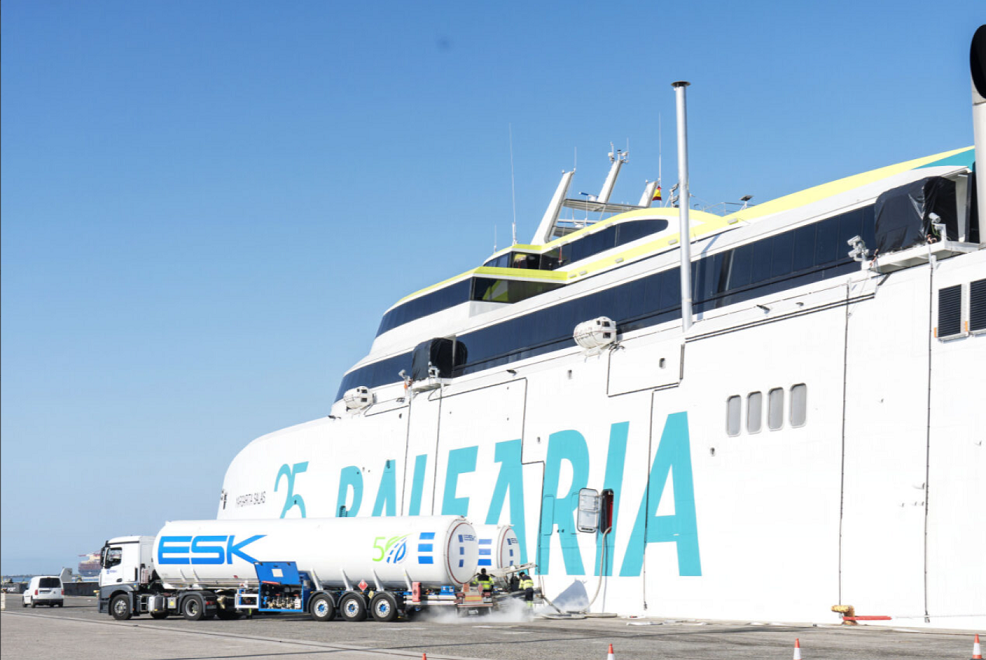September 21, 2025. Baleària takes another step forward in its decarbonization roadmap and regularly incorporates Bio-LNG into its operations. Thus, the vessels Margarita Salas, Abel Matutes, and Rusadir, which have dual gas engines, have been sailing exclusively on this renewable fuel since early September. The company has secured 132 gigawatt-hours (GWh) of Bio-LNG, allowing the three vessels to operate emission-free until December 2025. This volume, supplied in just four months, is equivalent to 13% of the LNG consumed by the entire fleet of natural gas vessels throughout 2024.
With this measure, Baleària not only eliminates its carbon footprint on the Barcelona–Alcúdia–Ciutadella and Málaga–Melilla routes, but also generates a positive overall carbon balance. The use of this biofuel between September and December will reduce CO2 emissions by 80,300 tons, equivalent to removing 153,500 cars from the roads or planting 160,650 trees annually.
The supplied biomethane is converted into Bio-LNG thanks to the pioneering conversion service at Enagás regasification plants, which is already available in Huelva, Barcelona, and Cartagena.
“The use of Bio-LNG on our regular routes represents real and verifiable progress in our commitment to achieving net-zero emissions,” says Georges Bassoul, CEO of Baleària. “The investments made in recent years in our fleet to incorporate dual-engine systems allow us to use this renewable fuel, which prevents the release of greenhouse gases and accelerates decarbonization.”
It is worth noting that in the first quarter of 2025, Baleària already carried out the first Bio-LNG supply tests in Spanish port terminals and even made the first decarbonized voyage in Europe between Barcelona and Menorca in 2021.




